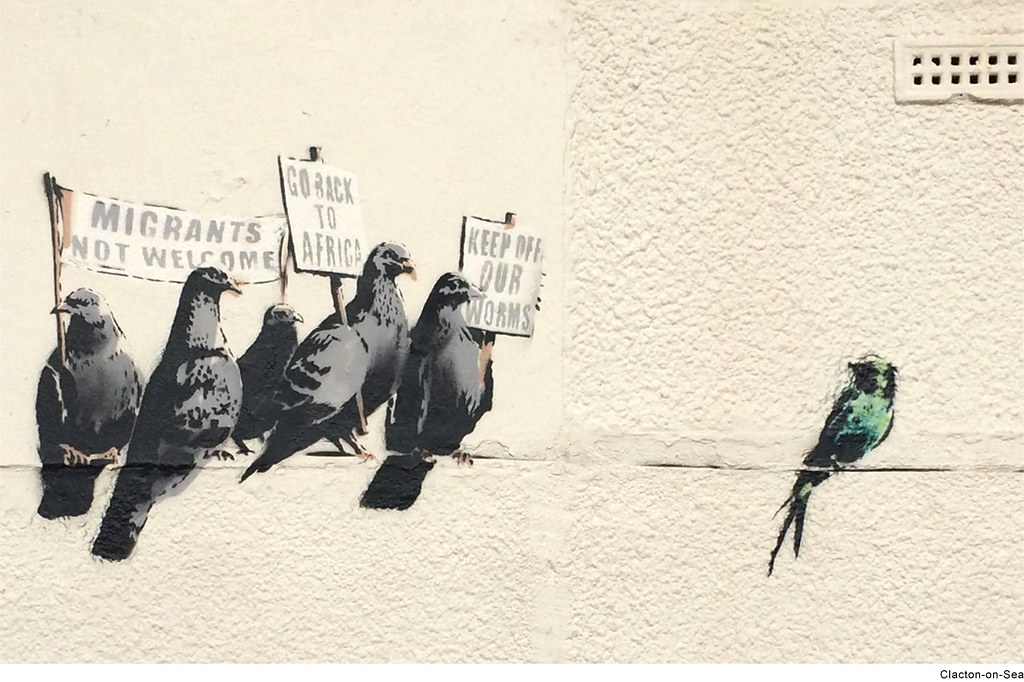Compulsory and elective courses
Completion requirements
2. Electives
2.1. Postcolonial Migration and Citizenship in Multi-cultural Societies 7.5 hp, 4SA721
Pigeons by Banksy, Clakton-on-Sea, photo by dullhunk, CC by 2.0
Objectives
After completing the course, students shall be able to:
- critically examine theories of global and postcolonial migration and how different discourses concerning migration have emerged and developed over time and space
- critically examine theories of nations, citizenship, diversity, sovereignty and belonging, and how these theories generate different discourses and policies as well as assess different processes of inclusion and exclusion in societal and institutional contexts
- discuss and critically reflect upon national populism and perils and possibility of belonging in the context of globalization, postcolonial migration and the nation state, with a particular focus on Europe and North America
- discuss and critically reflect upon diffferent categories of migratory experiences, e.g. asylum seekers, migrants, guest workers, refugees, new arrivals, and unaccompanied children, in relation to theories and ethics of migration and social work.
Content
This course concentrates specifically on three main issues: why people migrate, how ideas about migration and images of migrants are constructed, and what the impact is of different theories of nation, citizenship, diversity, sovereignty, and belonging at various levels in contemporary society. The course examines how categorizations of refugees, migrants, and their different statuses are formed in intersections between various discourses and policies in Sweden, the EU, and on a global scale. During the course, current theories, ethics and political discourses of postcolonial migration are presented and problematized. Accordingly, these theories provide the ground for more indepth study and analysis of the connection between postcolonial migration and discourses about citizenship and belonging in the context of globalization and nation state. Moreover, the course will explore how these discourses can determine processes of inclusion and exclusion and impact conditions regarding diversity in pluralistic societies.- This course is an elective
- 7,5 ECTS
- for more information, please click here

